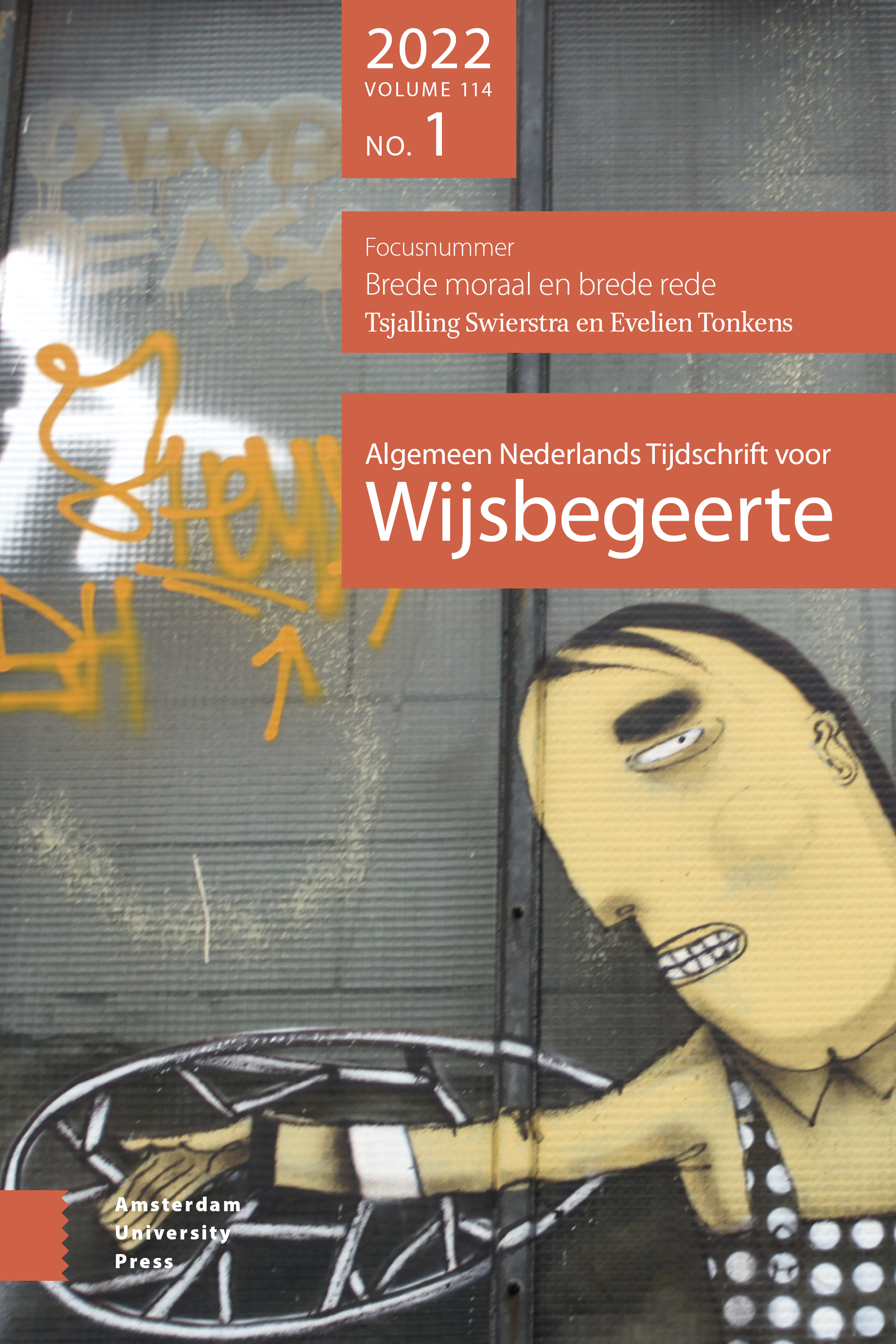-
oa Brede moraal en brede rede
Hoe inclusieve ethiek te combineren met psychologisch realisme
- Amsterdam University Press
- Source: Algemeen Nederlands Tijdschrift voor Wijsbegeerte, Volume 114, Issue 1, Apr 2022, p. 2 - 36
Abstract
Broad Morals and Broad Reason: Reconciling inclusive ethics with psychological realism
Many of today’s problems revolve around distance and proximity. Progressives argue that a universalist, inclusive ethics requires us to bridge distances in identity, space, and time. Conservatives object that such bridging is psychologically unrealistic: people of flesh and blood can only care about whom/what is close-by. Evolutionary and psychological research seems to corroborate this sobering view. Many researchers confirm that our intuitions (‘System 1’) are groupish and short-sighted, and largely deaf to the appeal of rational universalism (‘System 2’).
But not all agree. We distinguish four ‘evo-progressive’ attempts to reconcile evolution and psychology with a universalist, inclusive ethics. Singer and Pinker (1), Buchanan and Powell (2), and Sunstein (3) contend that a reason-based, inclusive ethics is psychologically feasible, but that such an ethics has to be thin, solely focusing on rights and no-harm. By contrast, Haidt (4) argues that an inclusive ethics should be ‘broad’, also encompassing moral domains like sacrality, loyalty and authority. This implies for him that it cannot be reason-based.
We argue that a broad form of inclusive ethics can and should be reason-based, but that this requires a rethinking of ‘reason’. We show that the evo-progressives’ conviction that a rational ethics is by definition thin, results from their theoreticistic conception of reason. But reason can also have more mimetic-embodied or mythical-narrative forms. These do allow for a broad, rational, inclusive ethics that can motivate real people to include stakeholders that are distant in identity, place, and time.


